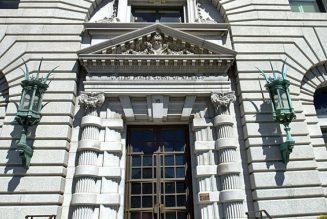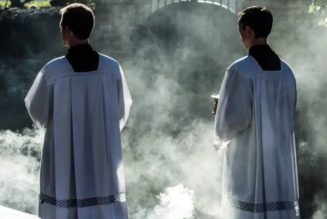By Phil Lawler ( bio – articles – email ) | Feb 13, 2024
Re-reading Jesus of Nazareth, I find myself stopping frequently to meditate on Pope Benedict’s many incisive observations. But recently I was stopped in my tracks by what seemed an almost parenthetical remark: his observation that “the early Christians called themselves simply ‘the living.’”
To say that we are “the living” might suggest that other people are dead. But Pope Benedict is discussing the joy that those early Christians felt because of their confidence in eternal life. They were “living” in a way different from their pagan neighbors. They rejoiced in a life that could not be extinguished by death.
So it was not only their hope in the afterlife that made those early Christians think of themselves as “the living.” Their faith also made a profound difference in the way they lived now, in their earthly existence.
We Christians have also at times referred to ourselves as “the saints,” although very few of us go about the world giving off the odor of sanctity. And we routinely refer to “the faithful,” although the sad truth is that we are not always faithful. Still we know what we should be, according to the nature transformed by Baptism. We know what we will be, if we merely accept God’s superabundant grace. We are “the living”—the ones who are truly alive.
Those early Christians who gave themselves that title have been buried for many centuries now. (“Ashes to ashes…”) Still those of us who are now breathing should learn from them. It is one thing—and a good thing—to look forward in hope to the rewards of eternal life. It is another thing—and also a good thing—to realize that our faith enriches our life here and now. “I came that they may have life, and have it abundantly,” our Lord said. [Jn 10:10] Life in abundance is not only a promise for the future; it is a reality now.
Christians are not alone in the recognition that a glimpse of eternity can bring happiness in this life. Plato, without the benefit of faith, taught that the philosopher can reach fulfillment by contemplating the eternal truths. How much richer, though, are we to whom the Truth has appeared in human form, and still lives among us and in us.
In the same section of Jesus of Nazareth—the 2nd volume, in an analysis of Christ’s high-priestly prayer—Pope Benedict makes the connection between “the living” and the Truth:
The disciples of Jesus are sanctified, consecrated “in the truth.” The truth is the bath that purifies them; the truth is the robe and the anointing they need.
We rejoice in the Truth that we find in Jesus Christ, and that is why we are “the living.” Not only because we have the promise of eternal life, but because the essence of that eternal life is already within us.
Have you ever heard someone say, “I’ve never felt so alive!” It is, I’m afraid, a line that occurs often in mediocre novels and movies. But the sentiment is a real one. There are moments in life when we feel a special burst of something that is not easily defined: a feeling that our horizons have opened up, our consciousness has expanded, our potential powers have suddenly grown.
That flood of feeling can come unexpectedly, from something as simple as watching a beautiful sunset. It can come when we achieve some long-cherished goal—or, paradoxically, when we set out on an ambitious crusade with uncertain prospects. It can come when we fall in love, and think (wrongly, but understandably) that in human history no two people have ever felt this way before.
Whenever and however it comes, this feeling is a taste of life in abundance. And yet we have life in abundance, more surely and more profoundly than in those moments, whenever we receive our Lord.
When someone suggested to her that the Eucharist is a beautiful symbol, Flannery O’Connor famously blurted out: “If it’s symbol, to hell with it.” Later, she explained that what she meant to convey was that the Eucharist “is the center of existence for me; all the rest of life is expendable.”
And now I have my Lenten resolution: to pare off all that is expendable, so that my life revolves tightly around the Eucharist, and I can count myself among “the living.”
Sound Off! CatholicCulture.org supporters weigh in.
All comments are moderated. To lighten our editing burden, only current donors are allowed to Sound Off. If you are a current donor, log in to see the comment form; otherwise please support our work, and Sound Off!

There are no comments yet for this item.









